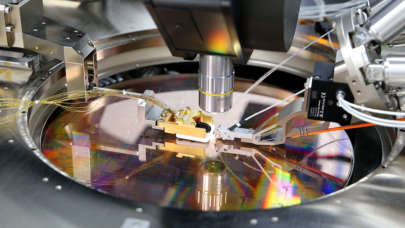The second year of “Supercomputing Education” project in Russia has completed. The idea for the project was presented to the President of Russia, Dmitry Medvedev, back in 2009. The work was immediately approved and scheduled for the 2010–2012 timeframe, with the implementation assigned to Lomonosov Moscow State University, the university that hosts the largest supercomputing center of Russia. Victor Sadovnichy, rector of Lomonosov Moscow State University, was named the head of the project.
 The strategic goal of the “Supercomputer Education” project is to create a national system for training of highly skilled supercomputing professionals. The initial effort in 2011 centered around developing and implementing the basic elements of such a system in Russia’s leading academic institutions. A total of 62 Russian universities were involved in the project.
The strategic goal of the “Supercomputer Education” project is to create a national system for training of highly skilled supercomputing professionals. The initial effort in 2011 centered around developing and implementing the basic elements of such a system in Russia’s leading academic institutions. A total of 62 Russian universities were involved in the project.
Major project participants include Lomonosov Moscow State University, Lobachevsky State University of Nizhny Novgorod, Tomsk State University, South Ural State University, St. Petersburg National Research University of Information Technologies, Mechanics and Optics, Southern Federal University, Far Eastern Federal University, Moscow Institute of Physics and Technology and other members of Supercomputing Consortium of Russian Universities. In aggregate, more than 600 people participated in this endeavor in 2011.
The national System of Research and Education Centers for Supercomputing Technologies (REC SCT), covering all federal districts of Russia, became the basis for the success of the project. The main goal of REC SCT is efficient organization of training and retraining of supercomputing professionals in universities, institutes, industry and business.
A large-scale training of entry-level specialists on supercomputing technologies was initiated in 2011. This was an activity which involved all federal districts and encompassed 45 Russian universities. Educational programs at most universities were aimed at basic training and getting knowledge of the most widely needed parallel programming technologies required to start using supercomputers and parallel computing systems. A total of more than 1,800 specialists were trained.
One of the most important aspects of the project was to develop the “Body of Knowledge” on parallel computing and supercomputing technologies. Based on this, proposals were composed to extend the third-generation national educational standards for Applied Mathematics and Computer Science and Mathematics for more in-depth education on supercomputing technologies. Next, proposals will be put forward for academic curricula and retraining programs on supercomputing technologies.
An extensive program for development and reviewing of educational literature on supercomputing technologies for bachelors, masters and postdocs is in the progress. More than 20 textbooks by Russian and foreign scientists are recommended to be included in Supercomputing Education series. All the books will be sent to 43 Russian university free of charge.
In 2011, retraining programs for professors and faculty members were implemented in all federal districts of Russia. More than 160 teachers from 40-plus Russian universities have successfully completed the program.
A lot of work has been done in development of supercomputing educational courses. In all, a total of 37 courses covering the main chapters of the Body of Knowledge were developed and disseminated among universities.
Intensive training of special groups aimed at deep studying of specific supercomputing technologies, one of the most difficult but important activity of the project, has been completed successfully. 18 special groups have been organized which were trained by 14 different educational programs. Special groups have been organized in all REC SCT federal districts, and more than 400 people have completed the education successfully.
Distance learning was actively used throughout the project. A total of 251 students from 100 Russian towns and cities have completed training in supercomputing technologies using the Internet University of Supercomputing Technologies (http://hpcu.ru, in Russian).
A national system of summer youth schools in all the major regions of Russian Federation has also been organized. A number of educational, analytic and popular papers, materials and books have been developed in close cooperation with leading scientists as well as representatives of industry and business.
International cooperation is one of the key aspects of the project. Three joint educational programs were developed by Russian and foreign universities. Under the project, many foreign scientists participated in scientific and educational activities. In additions, many partnership agreements on supercomputing technologies were made between Russian and foreign universities, institutes, supercomputing centers and companies.
A special system of public relations activities aimed at promoting supercomputing applications in different areas of industry, science and society has been developed and implemented. Its scope is extremely broad and includes TV lectures, articles in IT-related online journals, a series of publications in federal and regional mass media, participation in conferences, scientific festivals, exhibitions, excursions to supercomputing facilities, as well as many other activities.
Major results of the project are available at the Internet Center on Supercomputing Education (http://hpc-education.ru, in Russian), which is gradually becoming an unofficial national center for coordination of supercomputing educational activities for the country.
It is extremely important that all activities, both planned and implemented, are targeted to form an integrated national educational infrastructure, which is required to grow highly qualified supercomputing professionals. An extensive program of activities planned for 2012 envisions wider dissemination of ideas about the Supercomputing Education project in Russian academic and industrial community.
—-
Vladimir Voevodin is the deputy director of the Moscow State University Research Computing Center and is the national coordinator of the Supercomputing Consortium of Russian Universities. He can be reached at [email protected].




























































